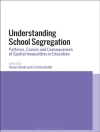This innovative book explores social work, therapy and counselling as a series of encounters – between clients and human services professionals, social workers, their colleagues and other professionals, and more widely between citizens and the state. Providing a variety of social constructionist perspectives on the idea of the ‘client’, it presents in-depth discussion of the roles, language and contexts of meetings between social workers and their clients.
International contributors present discussion on categorization, analysing identities and reflexive practice. Drawing data from a variety of sources, including meetings, client files and transcribed dialogues with clients, the book employs methods such as conversation and discourse analysis to propose new insights into what it means to be a client of the human services agency.
Bringing together a rich variety of data, this volume forms an important contribution to major debates on the nature of social work and counselling. As well as innovative approaches to theory and research, the implications for practice in social work and counselling are discussed. Challenging previously-held notions about clienthood, this book is a useful and thought-provoking resource for social workers, counsellors, policy makers, academics, researchers and students and trainers in social work and counselling.
قائمة المحتويات
Preface. 1. Introduction: Beyond a universal client. Kirsi Juhila, University of Tampere, Tarja Pösö, University of Tampere, Chris Hall and Nigel Parton, University of Huddersfield, UK. Part I. Constructing Client Identities and Morals. 2. Legitimating the rejecting of your child in a social work meeting. Christopher Hall, University of Huddersfield, Arja Jokinen and Eero Suoninen, University of Tampere. 3. Caring but not coping: Fashioning a legitimate parent identity. Christopher Hall and Stef Slembrouck, University of Ghent, Belgium. 4. Negotiating clienthood and the moral order of a relationship in couple therapy. Katja Kurri and Jarl Wahlström, University of Jyväskylä, Finland. Part II. Categorizing and Negotiating Clienthoods. 5. Creating a `bad’ client: Disalignment of institutional identities in social work interaction. Kirsi Juhila. 6. Parental identity under construction: Discourse and conversation analysis of a family supervision order. Carol van Nijnatten, University of Utrecht, Netherlands and Gerard Hofstede, Youth Care Policy Officer, Southern Netherlands. 7. The absent client: Case description and decision-making in inter-professional meetings. Pirjo Nikander, University of Tampere. 8. The dilemma of victim positioning in group therapy for abusive men. Terhi Partanen, University of Jyväskylä. Part III. Client work in professional contexts. 9. Trafficking in meaning: Constructive social work in child protection practice. Ah Hin Teoh, Jim Laffer, Nigel Parton, University of Huddersfield and Andrew Turnell, Independent Social Worker, Australia. 10. Complicated gender. Tarja Pösö, University of Tampere. 11. The social worker and moral judge: Blame, responsibility and case formulation. Sue White, University of Huddersfield. 12. Writers’, clients’, counsellors’ and readers’ perspectives in constructing resistant clients. Gale Miller, Marquette University, USA. 13. Client, user, member as constructed in institutional interaction. Søren Peter Olesen, University of Aalburg and Danish National School of Social Work. 14. Conclusion: Yes, but is any of this any use? Christopher Hall, Nigel Parton, Kirsi Juhila and Tarja Pösö. Appendix. References. Index.












